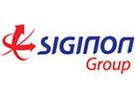Siginon has provided the following logistics outlook for 2020, in which they highlight the various challenges and opportunities they expect the first year of the new decade will bring.
The year 2020 marks the beginning of new decade. The logistics industry across the globe has experienced great disruptions from the year 2010 to the close of the decade emanating from various macro and micro economic factors. Notable upheavals include automation of key processes, a tightened regulatory environment and customer inclination for control and real time information on their shipments regardless of time or location, no doubt an indication of the shrinking global village. The year 2019 stretched thin the logistics players in Kenya and the region and to an unfortunate few, the stretch eventually led to shutdowns, job layoffs and sadly an increase on prosecutions arising from failing to meet contractual obligations.
The year 2020 logistics outlook seems to carry over some of that uncertainty particularly for players in the cargo transportation sector. Events in the global arena have shaped costs of doing business and negatively impacted the cost of key inputs. Some of these events include the US-Iran tensions that have directly hiked global fuel prices, a key component for operation. These additional costs will no doubt increase the cost of goods to an already burdened customer suffering from a myriad of taxes.
The Standard Gauge Railway (SGR), which was launched in 2018, will put to task the business model for transporters who previously relied on business from cargo off loaded from the Port of Mombasa and recently from the Inland Container Depot in Embakasi (ICDE). The SGR is now in full operation with increased pressure from the government to ensure that all goods imported into Kenya are loaded onto the SGR and ferried inland into Nairobi cutting off the gravy train for transporters. The expansion of the network further inland into Naivasha and future plans of linking it to the metre gauge rail (MGR) onwards to Kisumu and Kampala will tremendously reduce cargo volumes and cripple transporters who have been ferrying transit cargo from the ICD in Nairobi/Mombasa for cargo destined to Uganda, Rwanda, South Sudan and beyond.
Major infrastructure projects in the region are set to catalyze logistics in the region threatening Kenya’s position as East Africa’s capital. Notable projects include Ethiopia’s construction of the USD 5 billion airport while Rwanda is set to build a mega airport in partnership with Qatar Airways. The completion of these projects will steal the shine off Kenya’s Jomo Kenyatta International Airport (JKIA) and entice major freighters and forwarders away from Kenya to terminate at either of these airports.
The Kenya Customs Agents and Freight Forwarders Bill 2020 will play a great role in regulating the mode of operations by Clearing Agents. The Bill seeks to enhance service delivery in customs clearance by eliminating cargo delays, improve cargo flow, improve revenue collection by the revenue authority and lower the cost of doing business. The bill will boost the credibility of clearing and forwarding sector by registering licensed agents as well as detailing consequences for those operating outside the confines of the act. This will no doubt clean up the clearing agent’s fraternity. The new International Maritime Organisation (IMO) global sulphur cap 2020 rule came into force starting January 1 this year. The Kenya Ports Authority (KPA), which is a signatory, has licensed 2 companies to supply low Sulphur fuel for ships making call at the Port of Mombasa. The global Sulphur cap 2020 applies to all seagoing vessels, both cargo and fishing vessels and is aimed at reducing air pollution by cutting sulphur oxide emissions. The move to cleaner fuels could add substantially to logistics costs, from an estimated $400 a tonne for fuel oil today to as much as $600 a tonne, according to the International Chamber of Shipping. It is likely that the higher shipping costs may be absorbed throughout the manufacturing and transport supply chains
2020 also comes with great opportunities for trade in markets like the United Kingdom (UK) who have reaffirmed their interest to trade with Africa following Brexit. The resultant relationship will likely see an increase of exports of key UK exports such as; motor vehicles, chemicals and finished products as well as a number of imports from Africa into UK such as flowers, perishables and raw materials. Trade between neighboring East African countries such as Kenya and Uganda are likely to grow with the Kenya government’s provision of ICD’s in Naivasha for transit shipments. Demand for warehousing space adjacent to the ICD’s in Nairobi and Naivasha is set to spike. The spike will present a huge opportunity for free and bonded warehouses to serve customers using the SGR as well as align with the lucrative E-commerce sector.
"We remain optimistic that despite the potential challenges seen in the sector, the logistics sector comes with great opportunities that remain to be tapped for prosperity now and in future", the company concludes.
For more information: Siginon
Siginon
siginon.com
